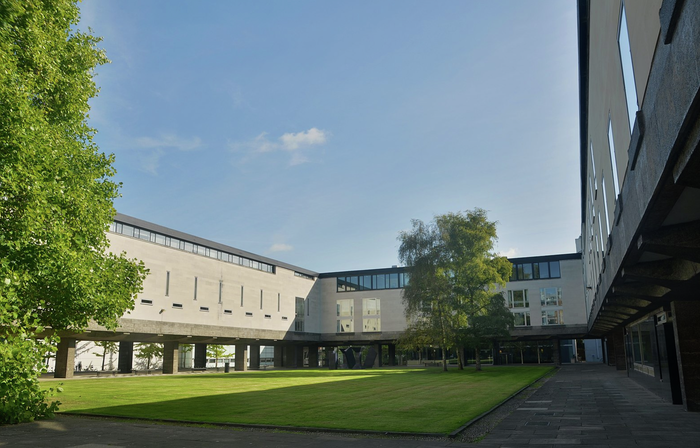Is Cambridge really Cambridge?
Our acceptance of college disparities reflects a deeper acceptance of social inequality

“College, course, name?” is the fresher’s hello. And with that first word your impression is formed. Our brain begins to cross reference every piece of college fact and gossip to size up an individual. Red flag colleges; Pitt club waitlisters; pooled and unwanted; Trinmos; nerdy Christonians; Downing lawyers; trust fund babies. And there it begins. Prejudices fostering inferiority complexes.
Which other society accepts the crème de la crème of university applicants only to rank them once more in the form of the Tompkins table; college age and endowment size; and Tripos ranking? As a ‘hill colleger’, perhaps this topic hits closer to home and unfortunately further from King’s Parade. Since receiving my offer I have become overly familiar with the little pause and half frown upon hearing Murray Edwards. This interaction inevitably ends with an enthusiastic, “Cambridge is Cambridge!”. A year on, I’m asking is Cambridge really Cambridge?
As I soon learnt, there is more to tainting a Cambridge experience than prestigious or social prejudice. College disparities extend beyond the proximity to Mainsburys or the majesty of a May Ball. As Varsity investigated, attending a college with low rent such as Homerton can make or break a student experience. There has also been significant variation in the number of contact hours per college such as extra classes and seminars. This disparity arises even before enrolling on a degree with only certain colleges setting essays for arrival.
Additionally, Trinity offers fully funded student exchanges for all subject students (not just MMLers) at universities in the States, France, China and Germany alongside language course bursaries, creating the opportunity of an effectively free fourth year. Wealthier colleges offer greater career prospects: funding unpaid summer internships and providing access to vast alumni networks such as the ‘Trinity Business & City Association’.
“in the Cambridge Universe(ity), instead of your birth it is your college name that acts as a starting point in life”
I spoke to a recent St John’s engineering graduate. When struggling to find a work placement compulsory for completion of the degree, John’s both found and subsidised an internship at the St John’s Innovation Centre – a sort of knowledge based company incubator whose site is owned by the college. College subject societies also make a considerable difference in offering CV boosting prizes, grants and competition opportunities such as mooting. This is not to be expected from a college whose assets per student are eight times lower. Just blur your eyes and there’s that pre-matriculation picture once again: underfunded comprehensives playing top trumps (or centralised examinations) with the nation’s finest public schools.
Some Cambridge students are born into families whose bogeyman is inheritance tax, others are the first to apply to university. The world is unfair. Play the cards you’re dealt. Except in the Cambridge Universe(ity), instead of your birth it is your college name that acts as a starting point in life. It is unsurprising to find that equality of opportunity is not a great priority here.
Britain is well known for its class system and reform has been slow and irregular. Trench warfare rather than revolution was the great equaliser and despite Tony Blair claiming an end to the ‘war on class’ in 1997, we still have an unelected chamber Parliament and a living breathing nobility. Oxbridge institutions exacerbate this issue by teaching an acceptance of class disparities, especially to those most able to initiate political change.
“Class becomes inevitably ingrained into the minds of our future leaders.”
Oxford has birthed 30 of Britain’s 57 prime ministers since Robert Walpole and Cambridge the other 14. Effectively, those in power have spent at least three instrumental years of their life indoctrinated within a collegiate society encouraging rank. They’ve been praised not only for their ‘gown’ rather than ‘town’ identity but even for wearing a differently cut ‘gown’ to those of their neighbouring colleges. You can always spot a smugly dressed Caian or Trinity blue! Class becomes inevitably ingrained into the minds of our future leaders.
Oxford and Cambridge are not unique in their classification as collegiate universities. The Ivy Leagues as well as Durham drew inspiration for their systems from Oxbridge. We can see why! Devolution gives us college bops, competing brunches and a sense of community. However, there are crucial differences. Durham colleges are centrally owned and set up by the university. Yale colleges are exclusively for undergraduates, are assigned randomly upon arrival and first years live together on campus. Education occurs centrally. Thus, upon a difficult arrival to US colleges (see an end to Affirmative Action), meritocracy and the American Dream allegedly kick in. I’m not sure I can say the same for my second home.
Perhaps the gain from healthy competition between service providers isn’t to be disregarded. But much as a ruling party shies away from electoral reform, no independent legal body would wish itself (or the perks it can offer) out of existence. So, since we all want what’s best for our children, all I can do is accept that the communal family idealised by Marx is not to be found at this university until the annual boat race.
 News / Eight Cambridge researchers awarded €17m in ERC research grants27 December 2025
News / Eight Cambridge researchers awarded €17m in ERC research grants27 December 2025 News / Downing investigates ‘mysterious’ underground burial vault 29 December 2025
News / Downing investigates ‘mysterious’ underground burial vault 29 December 2025 Lifestyle / Ask Auntie Alice29 December 2025
Lifestyle / Ask Auntie Alice29 December 2025 Sport / Hard work, heartbreak and hope: international gymnast Maddie Marshall’s journey 29 December 2025
Sport / Hard work, heartbreak and hope: international gymnast Maddie Marshall’s journey 29 December 2025 Science / Astronomical events to look out for over the break29 December 2025
Science / Astronomical events to look out for over the break29 December 2025










